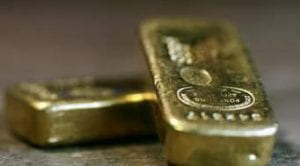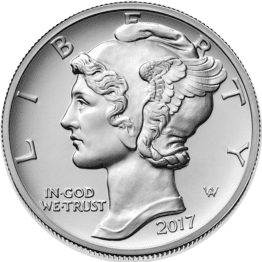By Patrick A. Heller – September 06, 2011 | (This article was originally printed in Numismatic News.)
Last Friday (Sept 2, 2011), a new round of WikiLeaks disclosures of U.S. State Department cables included one that discussed several commentaries posted in the Chinese news media on April 28, 2009. This particular cable reads:
“According to China’s National Foreign Exchanges Administration, China’s gold reserves have recently increased. Currently, the majority of its gold reserves have been located in the United States and European countries. The U.S. and Europe have always suppressed the rising price of gold.
They intend to weaken gold’s function as an international reserve currency. They don’t want to see other countries turning to gold reserves instead of the U.S. dollar’s role as the international reserve currency. China’s increased gold reserves will thus act as a model and lead other countries toward reserving more gold. Large gold reserves are also beneficial in promoting the internationalization of the renminbi.”
You can read the original U.S. embassy cable at http://www.gata.org/files/USEmbassyBeijingCable-04-28-2009.txt.
A later cable discusses how the U.S. government sought to restrain China from converting its foreign exchange reserves into gold. Instead, the U.S. government wanted to pretty much force China to purchase U.S. Treasury debt. In response, the Chinese realized that increasing their gold reserves would increase their international clout. The link to that cable is http://www.gata.org/files/USEmbassyBeijingCable-02-08-2010.txt.
Finally, a Dec. 4, 2008, cable warns that China’s acquisition of gold would be a problem for the U.S. and European governments in their consideration of restoring a partial gold reserve system. That problem would arise because the U.S. and European governments, at that time, held the majority of central bank gold reserves, which would effectively give these governments greater control at resurrecting a partial gold standard. Once again, the link to this cable is http://www.gata.org/files/USEmbassyBeijingCable-12-04-2008.txt.
The April 28, 2009, cable was sent just a few days after China publicly acknowledged that it had been adding to its gold reserves since 2003. I had heard stories starting in 2003 that it looked like the Chinese were adding to their gold reserves beyond what they were publicly reporting, but did not feel I had enough concurring evidence to mention it until 2005. I would hope that the U.S. government was aware of this activity starting back in 2003 and not surprised by the April 2009 announcement. Among these three cables, the most important points are 1) that the cable made the U.S. government aware that the Chinese government knew of the gold price suppression tactics engaged in by the U.S. government and its European allies, 2) the U.S. government was trying to interfere with the Chinese converting their reserves into gold so that they would have to buy U.S. Treasury debt, and 3) that the U.S. and European governments were discussing the adoption of a partial gold reserve system.
I suspect that there will be little coverage of these three disclosures by the mainstream media. However, you can be sure that other governments will be paying close attention to the revelations. The latest report shows that about 10 central banks reported increases in their gold reserves during the first half of 2011 (with Mexico leading the way), while only about two nations reported declines. Since then, Colombia has added gold reserves for the first time in more than a decade.
In the coming months, look for other central banks to protect themselves by becoming even more aggressive at adding to their gold reserves, whether or not they officially report doing so. You will also see a higher demand from people who understand the implications that the U.S. and European governments are talking about remonetizing gold and a means to support their paper currencies. Inevitably, that will tend to push gold prices even higher. At some point, a buying frenzy could develop. Don’t get left behind.










